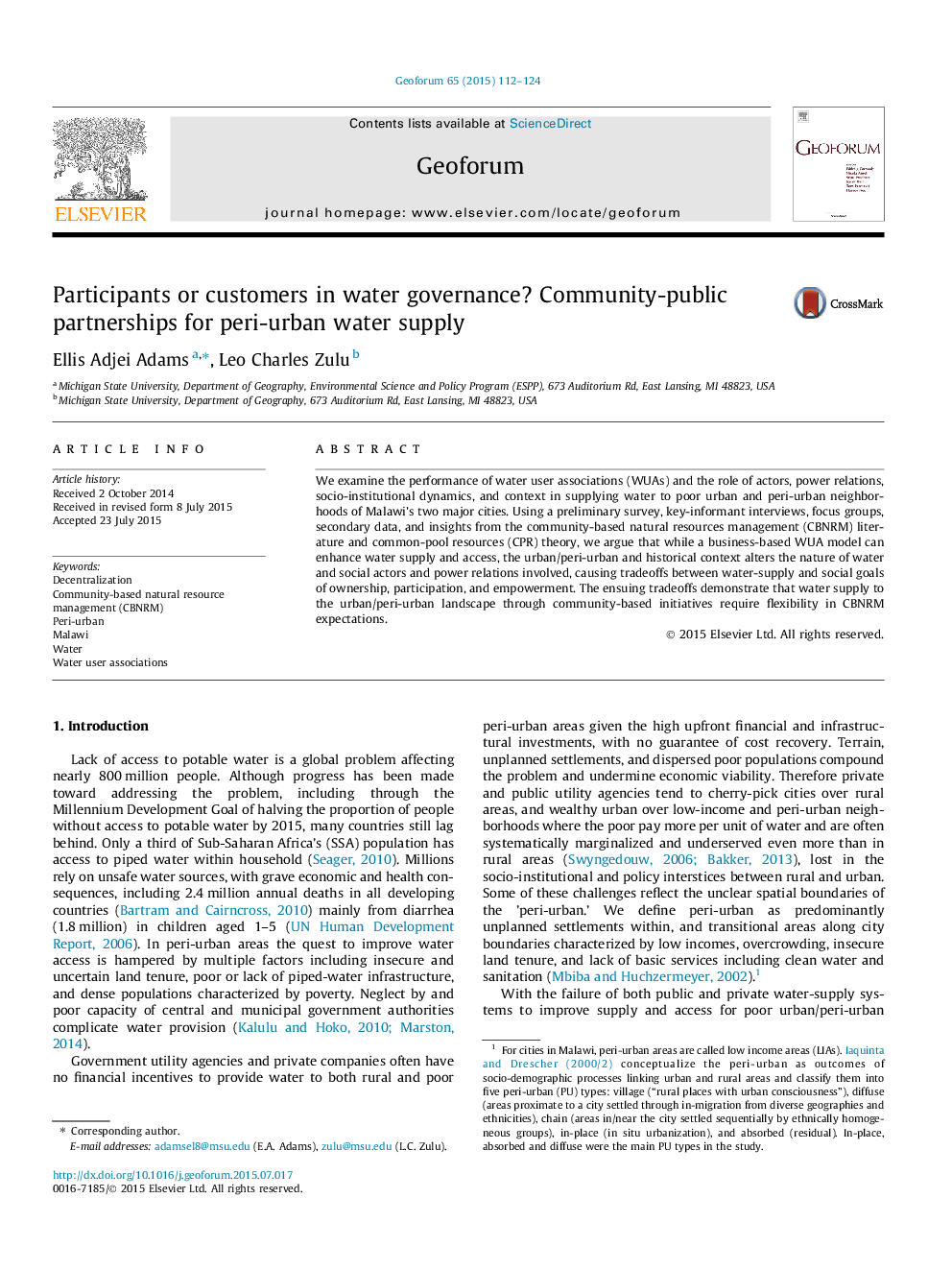| Article ID | Journal | Published Year | Pages | File Type |
|---|---|---|---|---|
| 5073797 | Geoforum | 2015 | 13 Pages |
Abstract
We examine the performance of water user associations (WUAs) and the role of actors, power relations, socio-institutional dynamics, and context in supplying water to poor urban and peri-urban neighborhoods of Malawi's two major cities. Using a preliminary survey, key-informant interviews, focus groups, secondary data, and insights from the community-based natural resources management (CBNRM) literature and common-pool resources (CPR) theory, we argue that while a business-based WUA model can enhance water supply and access, the urban/peri-urban and historical context alters the nature of water and social actors and power relations involved, causing tradeoffs between water-supply and social goals of ownership, participation, and empowerment. The ensuing tradeoffs demonstrate that water supply to the urban/peri-urban landscape through community-based initiatives require flexibility in CBNRM expectations.
Related Topics
Social Sciences and Humanities
Economics, Econometrics and Finance
Economics and Econometrics
Authors
Ellis Adjei Adams, Leo Charles Zulu,
